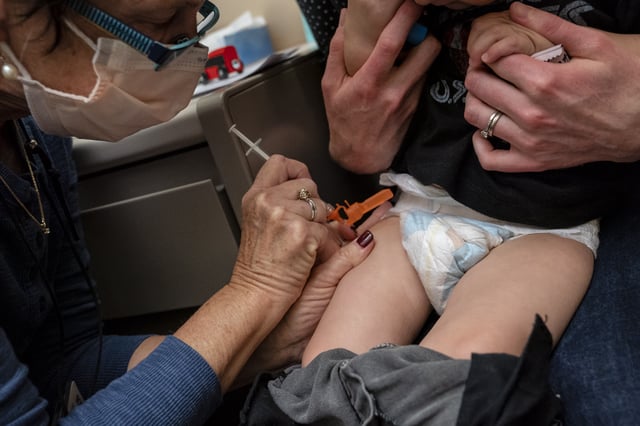Overview
- Researchers analyzed health registries for 1,224,176 Danish children born from 1997 to 2018, measuring aluminum exposure from vaccines before age two and tracking 50 chronic conditions through age five.
- Adjusted hazard ratios per 1 mg increase in cumulative aluminum were 0.98 for autoimmune disorders, 0.99 for atopic or allergic conditions and 0.93 for neurodevelopmental disorders, showing no significant risk elevation.
- Senior author Anders Hviid said the findings “should not concern” aluminum adjuvants, although the team noted they could not fully rule out a very small increase in risk for rare conditions.
- Vaccine safety experts, including Edward Belongia, called the Annals of Internal Medicine publication the most definitive observational study on aluminum exposure in childhood immunizations.
- The results counter longstanding misinformation about aluminum’s neurotoxicity and reinforce its essential role in global immunization programs.



